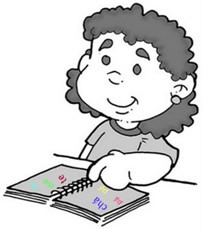Courtesy words and expressions... Does this matter catch your attention? Certainly yes, as it is part of their daily lives. Who does not like to be treated well (a), right? Well then, those little magic words, like the ones represented in the main image, represent this important virtue that we must all have.
We would spend a long time just talking about their importance, but our goal here is to understand them a little more with regard to written language, knowing about the linguistic characteristics that we can to assign.
In this way, imagine common, everyday situations like the ones we will describe from now on:
Expressions of courtesy are necessary, both in speaking and in writing.
Suppose your colleague is impatient, as he or she is waiting outside for you, but you have not finished getting ready. Do not be nervous (a), because you know what you can say to him? Watch:
Please, wait for me a few more moments, because I'm already finishing.
It doesn't even need to say how polite you were when using the expression "please", but we want you to pay attention, in addition to the importance of acting in this way, for a very detail important:
Did you notice that this expression appears accompanied by the comma? So, know that it could be both in the middle and at the end of the sentence, as long as it is in the company of this punctuation mark (comma), ok?
Let's go to another situation?
Think that you need the help of a colleague to help you in that somewhat difficult research... Thought? You could address him as follows:
wouldimmensely to count on your help in the research I have to do, as I'm having difficulty.
Got the tense? Ah! Yea! This tense, expressed in the future tense of the indicative way, has the purpose of leaving smooth the message you expressed, demonstrating how polite you are (a). Have you ever thought how unpleasant it would be if the speech had that bossy tone? In other words: Come quickly, now, help me with my research.
Know that another way to kindly place a request is to use the verb to want, conjugated in the present in the subjunctive way, because instead of expressing an order, it indicates a desire, a desire that something can happen. Let's see the example above, restructured?
wanthelp me in the research, because I'm having difficulty.
In orality, of course, you already knew them, but now, in writing, you've become an expert on the subject, isn't that true?
By Vânia Duarte
Graduated in Letters



